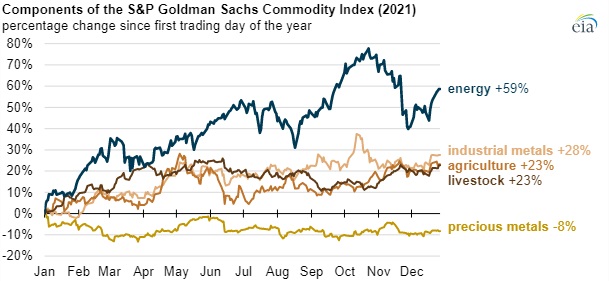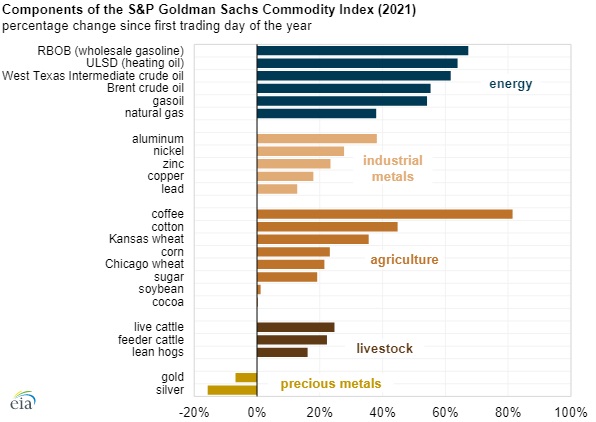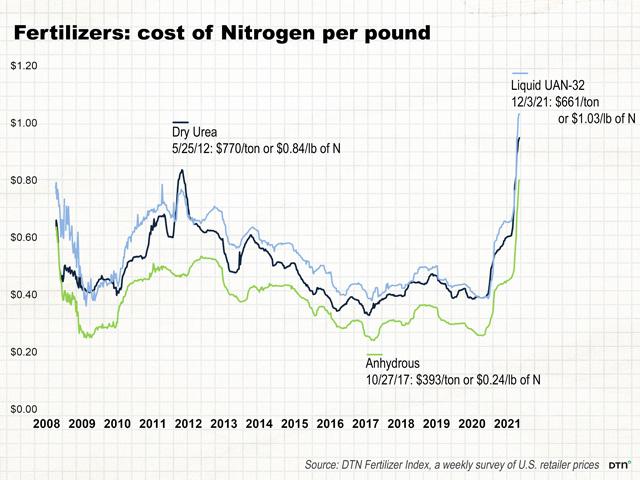Energy costs increased faster than other commodities in 2021
Data from the U.S. Energy Information Administration show that the cost of energy far outstripped the price of other commodities in 2021.
EIA based its analysis on the S&P Goldman Sachs Commodity Index. According to the index, energy prices were up 59 percent year over year, industrial metals were up 28 percent, agriculture and livestock were up 23 percent, respectively, and precious metals were down 8 percent.

The graph below shows the impact of inflation on several vital commodities, including oil, gasoline, natural gas, food staples, and metals.

While energy commodities experienced the most significant price increases, I believe other sectors of the economy will also experience increases in costs due primarily to the rise in energy prices.
For example, high energy prices in Europe have caused fertilizer plants and aluminum smelters to shut down rather than incur enormous costs for natural gas and electricity. This type of action is called “demand destruction,” and it basically means that the price of energy is so high that people no longer want to use it.
This is very bad for the overall economy and human well-being because the definition of energy is the ability to do work. If we can’t afford the energy, we can’t afford to do work. If we don’t do things like produce fertilizer or aluminum because energy prices are too high, that will lead to rising prices for food and metals.
We’re already seeing this in the fertilizer industry. Costs are higher today than at any point in recent history.

I have a relative that works for a large vegetable grower in the Midwest. He said that their costs for fertilizer and herbicides are about three times higher than they were last year. He said these prices mean it will be unlikely for canned vegetables to be priced below $1 per can this coming growing season.
When prices rise, low-income households will be hit hardest. This is why the energy policies advanced by wind and solar advocates inflict harm on the “environmental justice” communities they pretend they are seeking to help.
The best way to ensure we are helping as many people as possible is to ensure our society has access to reliable, affordable energy. Focusing on what works, instead of subsidizing unreliable energy sources, will be crucial for curbing inflation and bringing prices back down.